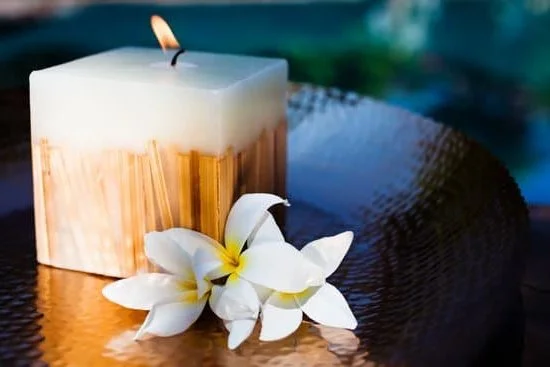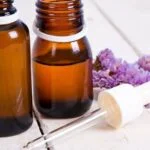
Eucalyptus oil is a versatile and potent essential oil that has been widely used in the practice of aromatherapy for centuries. With its distinctive, refreshing scent and numerous therapeutic properties, eucalyptus oil has become a staple in many households and wellness routines. In this article, we will delve into the world of eucalyptus oil and its many uses in aromatherapy, exploring its origins, benefits, and how it can enhance your well-being.
Aromatherapy is an ancient healing practice that utilizes the natural aromatic properties of different plants to promote physical and mental well-being. By inhaling or applying essential oils derived from various plant sources, such as flowers, leaves, or stems, aromatherapy aims to tap into the body’s innate ability to heal itself and find balance. Eucalyptus oil is one such essential oil that has been treasured for its therapeutic benefits.
The history of eucalyptus oil dates back centuries and can be traced to the indigenous Australian population who first discovered its medicinal properties. Traditionally used for respiratory issues and wound healing, eucalyptus oil quickly gained recognition worldwide for its powerful healing abilities. Today, it is commonly found in a wide range of products including soaps, lotions, candles, and diffusers used in aromatherapy practices.
In the following sections of this article, we will explore the specific benefits of using eucalyptus oil in aromatherapy. From promoting respiratory health to relieving stress and improving skin health, eucalyptus oil offers a range of advantages that can greatly enhance your well-being. We will also provide tips on incorporating eucalyptus oil into your aromatherapy routine safely and effectively. So let’s embark on this aromatic journey together as we uncover the wonders of eucalyptus oil in aromatherapy.
What is Aromatherapy
Aromatherapy is a holistic healing practice that uses essential oils to promote physical, mental, and emotional well-being. It is based on the belief that certain aromas can have therapeutic effects on the body and mind. The use of aromatic plants for medicinal purposes dates back thousands of years and can be traced to ancient civilizations such as Egypt, India, and China.
In aromatherapy, essential oils extracted from various parts of plants are used to create a balance in the body and promote healing. These oils contain highly concentrated plant compounds that possess unique properties and therapeutic benefits. They can be inhaled, applied topically, or used in massage to stimulate the senses and support overall wellness.
The practice of aromatherapy involves understanding the different properties of essential oils and their specific effects on the body. Each oil has its own distinct aroma and therapeutic properties. For example, lavender oil is known for its calming and relaxing properties, while peppermint oil is invigorating and energizing.
Aromatherapy can be used to address a wide range of physical and emotional concerns such as stress, anxiety, pain relief, improved sleep quality, respiratory issues, skincare, and more. It offers a natural alternative to conventional medicine with minimal side effects.
Overall, aromatherapy is a versatile healing practice that harnesses the power of nature’s essences to enhance health and well-being. With its rich history rooted in ancient traditions from around the world, it continues to be a popular choice for those seeking natural remedies for their physical and emotional needs.
| Essential Oil | Main Properties | Benefits |
|---|---|---|
| Lavender | Calming | Relieves stress & anxiety |
| Peppermint | Invigorating | Eases headaches & boosts energy |
| Lemon | Refreshinng | Uplifts mood & improves focus |
| Tea Tree | Antimicrobial | Treats skin infections & promotes healing |
The Origins of Eucalyptus Oil
Eucalyptus oil has been used for centuries and has a rich history deeply rooted in ancient healing practices. The origins of eucalyptus oil can be traced back to Australia, where the eucalyptus tree is native. The indigenous people of Australia, particularly the Aboriginals, have long recognized the medicinal properties of eucalyptus and used it for various purposes.
The use of eucalyptus oil in aromatherapy can be attributed to the Europeans who first discovered its therapeutic benefits. In the 19th century, the essential oil was distillated from the leaves of the eucalyptus tree and gained popularity for its healing properties. It was known as “eucalyptol” and quickly became a staple ingredient in many traditional remedies.
One of the main reasons why eucalyptus oil gained recognition was its powerful antiseptic properties. During World War I, eucalyptus oil was widely used as a disinfectant for wounds and to prevent infection. Its effectiveness led to further research and exploration into its potential health benefits.
Today, eucalyptus oil is widely used in aromatherapy practices around the world. Its invigorating scent and therapeutic qualities make it a popular choice for enhancing well-being. Whether it’s inhaling its fragrance or applying diluted forms topically, eucalyptus oil continues to play a significant role in promoting physical and mental wellness.
Unveiling the rich history and origins of eucalyptus oil reminds us of its long-standing tradition as a healing remedy. From ancient Australian civilizations to modern-day aromatherapy practices, this essential oil has proven time and again that it is truly an herbal marvel with numerous beneficial uses.
- Origins in Australia: Indigenous people like Aboriginals recognized the medicinal properties.
- Discovery by Europeans: Distillation from leaves of the eucalyptus tree in the 19th century.
- Growth in popularity: The powerful antiseptic properties of eucalyptus oil helped it gain recognition and further research and exploration into its potential health benefits.
Exploring the Benefits of Eucalyptus Oil in Aromatherapy
Aromatherapy is a practice that has been used for centuries to enhance physical and emotional well-being. By using essential oils derived from plants, aromatherapy aims to promote relaxation, alleviate stress, and improve overall wellness. One essential oil that has gained significant popularity in aromatherapy is eucalyptus oil.
Eucalyptus oil, extracted from the leaves of the eucalyptus tree native to Australia, offers numerous benefits when incorporated into aromatherapy practices. It contains powerful antiseptic and anti-inflammatory properties, making it an effective tool for enhancing overall well-being.
One of the notable benefits of eucalyptus oil in aromatherapy is its ability to support respiratory health. When diffused or inhaled, eucalyptus oil can help clear congestion and improve breathing. It acts as a natural expectorant, helping to loosen phlegm and mucus in the respiratory tract. Additionally, its antibacterial properties can help boost immunity and prevent respiratory infections.
Eucalyptus oil is also known for its calming properties, making it a useful tool for relieving stress and mental fatigue. When used in aromatherapy practices such as massage or bath blends, eucalyptus oil can create a soothing environment that promotes relaxation and reduces anxiety. Its invigorating scent can help uplift mood and improve focus, making it an excellent choice for those needing mental clarity.
Eucalyptus Oil for Respiratory Health
Eucalyptus oil is widely recognized for its beneficial properties in promoting respiratory health. It has long been used in aromatherapy to alleviate symptoms of congestion and support a healthy immune system. In this section, we will explore how eucalyptus oil can effectively clear congestion and boost immunity, helping you breathe easier and stay healthy.
One of the key benefits of eucalyptus oil in respiratory health is its ability to relieve congestion. The oil contains compounds called cineole, which have been shown to loosen mucus and phlegm, making it easier to expel from the respiratory system. This can be particularly helpful in cases of colds, coughs, sinusitis, bronchitis, and other respiratory conditions where congestion is a prominent symptom.
Additionally, eucalyptus oil is known for its immune-boosting properties. It contains antimicrobial and antibacterial compounds that can help fight off pathogens and strengthen the body’s natural defense mechanisms. By using eucalyptus oil in aromatherapy, you can enhance your body’s ability to resist infections and maintain a strong immune system.
To incorporate eucalyptus oil into your aromatherapy routine for respiratory health benefits, there are several methods you can try. Inhalation is one of the most effective ways to experience the therapeutic effects of this essential oil. You can add a few drops of eucalyptus oil to a diffuser or steaming water and inhale the vapors deeply. This will help clear your airways, reduce congestion, and provide relief from respiratory discomforts.
In summary, eucalyptus oil is a valuable tool in promoting respiratory health through aromatherapy. Its ability to clear congestion and boost immunity makes it an excellent choice for individuals looking to improve their breathing and overall well-being.
Relieving Stress and Mental Fatigue with Eucalyptus Oil
Understanding the Stress Epidemic
In today’s fast-paced world, stress has become increasingly prevalent and can have detrimental effects on our mental and physical well-being. From demanding work schedules to personal responsibilities, it can sometimes feel overwhelming to manage everything that life throws at us. This is where the calming properties of eucalyptus oil in aromatherapy can come to our rescue.
The Calming Effects of Eucalyptus Oil in Aromatherapy
Eucalyptus oil has long been known for its ability to promote relaxation and alleviate stress. When used in aromatherapy, the scent of eucalyptus oil triggers a response in the brain that helps to reduce feelings of anxiety and tension. It works by stimulating certain receptors in the brain, such as gamma-aminobutyric acid (GABA) receptors, which are responsible for calming the nervous system.
Reducing Mental Fatigue with Eucalyptus Oil
In addition to its stress-relieving properties, eucalyptus oil also has the ability to combat mental fatigue. The refreshing scent of this oil is invigorating and helps to clear the mind, allowing for increased focus and concentration. Whether you’re studying for an exam or trying to stay alert during a long workday, incorporating eucalyptus oil into your aromatherapy routine can provide you with the mental clarity you need.
By utilizing the calming and revitalizing properties of eucalyptus oil, you can create a sanctuary for yourself amidst the chaos of everyday life. Soothing your mind and allowing yourself some much-needed downtime is essential for maintaining overall well-being. In the next section, we will explore how eucalyptus oil can also benefit your skin, transforming your aromatherapy experience into a holistic treat for both body and mind.
Skincare Marvels
Overview
Eucalyptus oil is not only a popular essential oil in aromatherapy, but it also offers numerous benefits for skincare. Its natural properties make it an excellent addition to your skincare routine, providing nourishment and revitalization for your skin. In this section, we will explore the various ways eucalyptus oil can enhance the health and appearance of your skin.
Benefits for Skin Health
Eucalyptus oil has antimicrobial and anti-inflammatory properties that can help maintain healthy skin. Its cooling effect makes it a great solution for soothing irritated skin conditions such as acne, eczema, and psoriasis. The oil also possesses antioxidant properties, which can protect your skin against damage from free radicals and environmental pollutants.
Additionally, eucalyptus oil is known to promote the production of collagen, a protein that plays a vital role in maintaining the elasticity and firmness of your skin. By stimulating collagen synthesis, eucalyptus oil can help reduce the appearance of fine lines and wrinkles, giving you a more youthful complexion.
Methods of Application
There are several ways to incorporate eucalyptus oil into your skincare routine. One simple method is by adding a few drops of eucalyptus oil to your facial cleanser or moisturizer. This allows it to penetrate deeply into your pores and provide its beneficial effects.
Another option is to create a DIY face mask using eucalyptus oil. Mix a few drops with other ingredients such as clay powder or honey to create a paste-like consistency. Apply this mask to your face and leave it on for about 10-15 minutes before rinsing off with warm water. This mask can help cleanse your pores, reduce inflammation, and leave your skin feeling refreshed.
It’s important to note that while eucalyptus oil offers many benefits for skincare, it is potent and should be used with caution. Dilution is key to avoid skin irritation, so always mix it with a carrier oil such as jojoba or coconut oil before application. Additionally, perform a patch test on a small area of your skin to check for any adverse reactions before using eucalyptus oil on your face or body.
In the next section, we will explore how to integrate eucalyptus oil into your aromatherapy routine, providing tips, recipes, and techniques for a truly transformative experience.
Integrating Eucalyptus Oil into Your Aromatherapy Routine
Adding eucalyptus oil to your aromatherapy routine can greatly enhance your overall well-being. Whether you are new to aromatherapy or a seasoned practitioner, incorporating this versatile essential oil into your routine can provide numerous benefits. Here are some tips, recipes, and techniques for integrating eucalyptus oil into your aromatherapy practice.
One of the simplest ways to use eucalyptus oil is through inhalation. You can simply add a few drops of eucalyptus oil to a diffuser or vaporizer and let the aroma fill your space. This method is especially beneficial if you are looking to clear congestion or boost your respiratory health. The refreshing scent of eucalyptus can help open up your airways and relieve nasal congestion.
Another way to incorporate eucalyptus oil into your routine is through topical application. However, it’s important to remember that essential oils should never be applied directly to the skin without dilution. To create a massage oil or body lotion using eucalyptus oil, you can mix a few drops with a carrier oil such as coconut, jojoba, or almond oil. This blend can then be used to massage onto sore muscles or as a moisturizer for your skin.
For those who enjoy baths, adding eucalyptus oil to your bathwater can create a rejuvenating experience. Combine a few drops of eucalyptus oil with Epsom salt or carrier oils before adding it to warm bathwater. As you soak in the bath, the steam will release the aromatic properties of the oil while leaving you feeling refreshed and relaxed.
Safety Precautions and Tips
When using eucalyptus oil in aromatherapy, it is important to keep certain safety precautions in mind. While this essential oil offers numerous benefits, improper use can lead to adverse reactions or interactions with medications. By following these tips, you can ensure a safe and effective aromatherapy experience with eucalyptus oil.
First and foremost, it is crucial to remember that eucalyptus oil should never be ingested orally. It is toxic when consumed internally and can lead to serious health complications. Instead, eucalyptus oil should only be used externally through inhalation or diluted application on the skin. If you have any concerns about using eucalyptus oil on your skin or inhaling its aroma, consult with a qualified aromatherapist or healthcare professional for guidance.
Another safety precaution to consider is the dilution of eucalyptus oil before applying it topically. Pure essential oils are highly concentrated and can cause skin irritation if used undiluted. To safely apply eucalyptus oil onto the skin, it must be mixed with a carrier oil such as almond, coconut, or jojoba oil.
Begin by adding a few drops of eucalyptus oil into a tablespoon of carrier oil and gradually increase the amount as needed. This will help prevent any adverse reactions and ensure maximum effectiveness.
Lastly, when using eucalyptus oil for inhalation purposes, be cautious about the dosage and duration of exposure. As with all essential oils, prolonged or excessive inhalation can cause respiratory irritation. It is recommended to use no more than 5-10 drops of eucalyptus oil in a diffuser or steam inhalation session lasting no longer than 15-20 minutes at a time. Remember to take breaks between inhalation sessions to allow your body to rest and adjust.
By adhering to these safety precautions and tips, you can enjoy the therapeutic benefits of eucalyptus oil in aromatherapy without any negative side effects. It is always advisable to conduct a patch test on a small area of skin before using eucalyptus oil for the first time, especially if you have sensitive skin or known allergies. With proper usage and care, eucalyptus oil can become a valuable tool in your aromatherapy routine, promoting physical and mental well-being.
Conclusion
In conclusion, eucalyptus oil is a powerful and versatile essential oil that can greatly enhance your aromatherapy experience. Its rich history and origins add to its allure and make it a popular choice among practitioners of this ancient healing practice. Through its numerous benefits, eucalyptus oil can improve your respiratory health, relieve stress and mental fatigue, and nourish your skin.
One of the key benefits of incorporating eucalyptus oil into your aromatherapy routine is its ability to support respiratory health. By clearing congestion and boosting immunity, this oil can help alleviate symptoms associated with respiratory conditions such as coughs, colds, and sinus congestion. Its expectorant properties promote the loosening of phlegm, making it easier to breathe and ultimately improving overall respiratory well-being.
Additionally, eucalyptus oil possesses calming properties that make it an effective tool for relieving stress and mental fatigue. The pleasant aroma of this essential oil has been shown to promote relaxation and ease anxious thoughts. Whether used in a diffuser or added to a bath, the soothing scent of eucalyptus oil can help create a peaceful ambiance that encourages inner calmness.
Furthermore, eucalyptus oil offers various skincare marvels that can contribute to the revitalization of your skin. Known for its antiseptic and anti-inflammatory properties, this oil helps combat acne-causing bacteria and reduce redness or irritation on the skin. It also acts as a natural moisturizer when diluted properly with carrier oils or added to skincare products, leaving your skin nourished and refreshed.
To fully harness the power of eucalyptus oil in aromatherapy, it is important to follow safety precautions and use it properly. Always dilute the essential oil before applying it topically or using it in a diffuser. It is also advisable to consult with a healthcare professional if you have any underlying health conditions or are pregnant or nursing.
Frequently Asked Questions
How do you use eucalyptus oil for scents?
Eucalyptus oil can be used for scents in several ways. One common method is to add a few drops of eucalyptus oil to a diffuser or humidifier, along with water. The diffuser will disperse the oil into the air, filling the room with its pleasant aroma.
Another option is to create your own homemade air freshener by mixing eucalyptus oil with water in a spray bottle, and then spritzing it around your home as needed. Additionally, eucalyptus oil can be added to homemade candles or wax melts to infuse them with its invigorating scent.
What is eucalyptus lavender oil good for in a diffuser?
Eucalyptus lavender oil is an excellent choice for a diffuser due to its unique blend of two soothing and refreshing scents. When used in a diffuser, eucalyptus lavender oil can help create a calming and relaxed ambiance in any space.
The combination of eucalyptus and lavender essential oils promotes relaxation, reduces stress, and can even aid in improving sleep quality. Whether you want to unwind after a long day or create a serene environment during meditation or yoga practices, eucalyptus lavender oil in a diffuser can be highly beneficial.
Is it safe to put eucalyptus oil in a diffuser?
When used properly, it is generally safe to put eucalyptus oil in a diffuser. However, there are some precautions that should be taken into consideration. Firstly, ensure that you are using pure, high-quality eucalyptu




